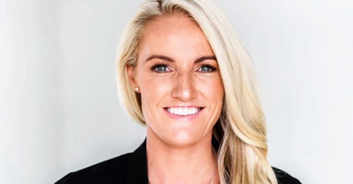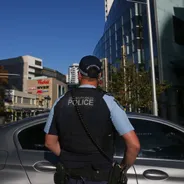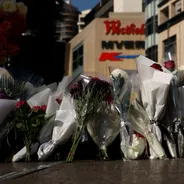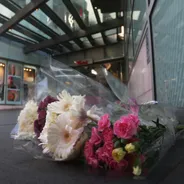The poisoning of former Russian military intelligence officer and British double agent Sergei Skripal has led to extreme tension between Russia and the west, particularly the United Kingdom. On 4 March 2018, Sergei and his daughter Yulia - who was visiting him from Moscow - were both poisoned by unknown assailants carrying samples of the Novichok nerve agent while out walking. The two were found catatonic on a park bench near a shopping centre in Salisbury, England, and were immediately rushed to a nearby hospital. Yulia is now reportedly conscious and capable of speech, while Sergei is still critically ill.
On March 14, in response to the incident, British Prime Minister Theresa May claimed that the Kremlin was responsible for the botched assassination attempt and expelled 23 Russian diplomats from the embassy in retaliation, as well as demanding an explanation from Russian president Vladimir Putin. Disturbingly, this isn't the first time that someone has been ordered assassinated at the behest of the Kremlin, and sadly, unless Putin's government stops acting so antagonistically, it probably won't be the last time either.
1. Alexander LitvinenkoAlexander Litvinenko, a former officer of the Russian FSB secret service and the man who coined the term "mafia state" to describe governments that were reliant upon organised crime, was killed in 2006 after a sample of the radioactive material polonium-210 was slipped into his tea. Litvinenko was a vocal critic of Vladimir Putin and the Russian security service and had even accused Putin of orchestrating a number of apartment bombings which were blamed on Chechen separatists in 1999 in order to consolidate power. Litvinenko died on November 23, 22 days after ingesting the lethal polonium. In 2016, a public inquiry concluded that Litvinenko's murder was most likely personally approved by Vladimir Putin and that the hit had been carried out by politician and businessman Andrey Lugovoy.
2. Denis VoronenkovDenis Voronekov was a Russian politician who served as a member of the State Duma for five years, before migrating to Ukraine with his wife in 2016. He became a vocal critic of Putin and Russia's foreign policy after losing an election to United Russia candidate Vladimir Panov. In 2017, after blogger Alexei Navalny conducted an investigation into Voronenkov's suspicious assets, the Investigative Committee of Russia opened a case to determine whether Voronenkov was guilty of corruption and embezzlement. On March 23, in Kiev, Voronekov was shot dead by an unknown gunman while exiting the Premier Palace hotel, an act which Ukrainian president Petro Poroshenko called an act of Russian "state terrorism."
3. Natalia EstemirovaJournalist and human rights activist Natalia Estemirova had made a name for herself investigating a series of abductions and homicides in Chechnya, where pro-Russian security forces were cracking down on Islamic insurgents carrying out terrorist attacks in the region. Estemirova was critical of the brutal methods employed by state forces, and of Putin for sanctioning these acts. In 2009, Estemirova was kidnapped outside her home and shot to death. Her body was found later in the woods nearby. Memorial, the human rights group which Estemirova represented, claimed that "state terror" was to blame and characterised her death as a case of "extrajudicial execution" by government-funded hitmen.
4. Boris NemtsovThere was a time when Boris Nemtsov was one of the young reformers, a group of individuals that many people believed were going to usher in a far more liberal and tolerant Russia in the aftermath of the Cold War. While Boris Yeltsin was president, Nemtsov was extremely influential. But after Putin's election in 2000 following Yeltsin's resignation, Nemtsov did not mince words in voicing his criticism and disapproval of the new, nationalistic establishment. Nemtsov drew particular attention following the corruption and embezzlement surrounding the 2014 Sochi Olympic games, as well as Russia's interference in Ukraine. At the time of his death, Nemtsov was organising a rally protesting Russian involvement in the Ukrainian civil war, and three weeks before he was killed he reported to a friend that he was afraid for his own life. On 27 February 2015, Nemtsov was shot several times in the back in Moscow at approximately 23.40. The next day, Nemtsov's journals and computer hard drives were seized in a police search of his apartment.
5. Anna PolitkovskayaAnna Politkovskaya was a Russian reporter for the newspaper Novaya Gazeta. In her book, "Putin's Russia", Politkovskaya wrote extensively about human rights abuses in Chechnya and accused Vladimir Putin of running a police state. Politkovskaya was open about the numerous death threats she had received after becoming a whistleblower and even claimed to have been poisoned while on a flight to Beslan in 2004. On 7 October 2006, Politkovskaya was brutally murdered while standing in the elevator of her apartment building. She had been shot four times at point-blank range. Vladimir Putin himself denied any Kremlin involvement in Politkovskaya's death, and merely stated: "death in itself is more damaging to the current authorities both in Russia and the Chechen Republic ... than her activities."
But the Russian regime isn't just stamping out critics and dissidents - it's also attacking minorities and discriminating against LGBTQ people. Although Putin himself claims that gay people are "just like everyone else and they enjoy full rights and freedoms," his own restrictive and oppressive policies speak far louder than his words. If you don't believe me then check out the worst things that Vladimir Putin has done to gay people.
Featured illustration by Egarcigu












